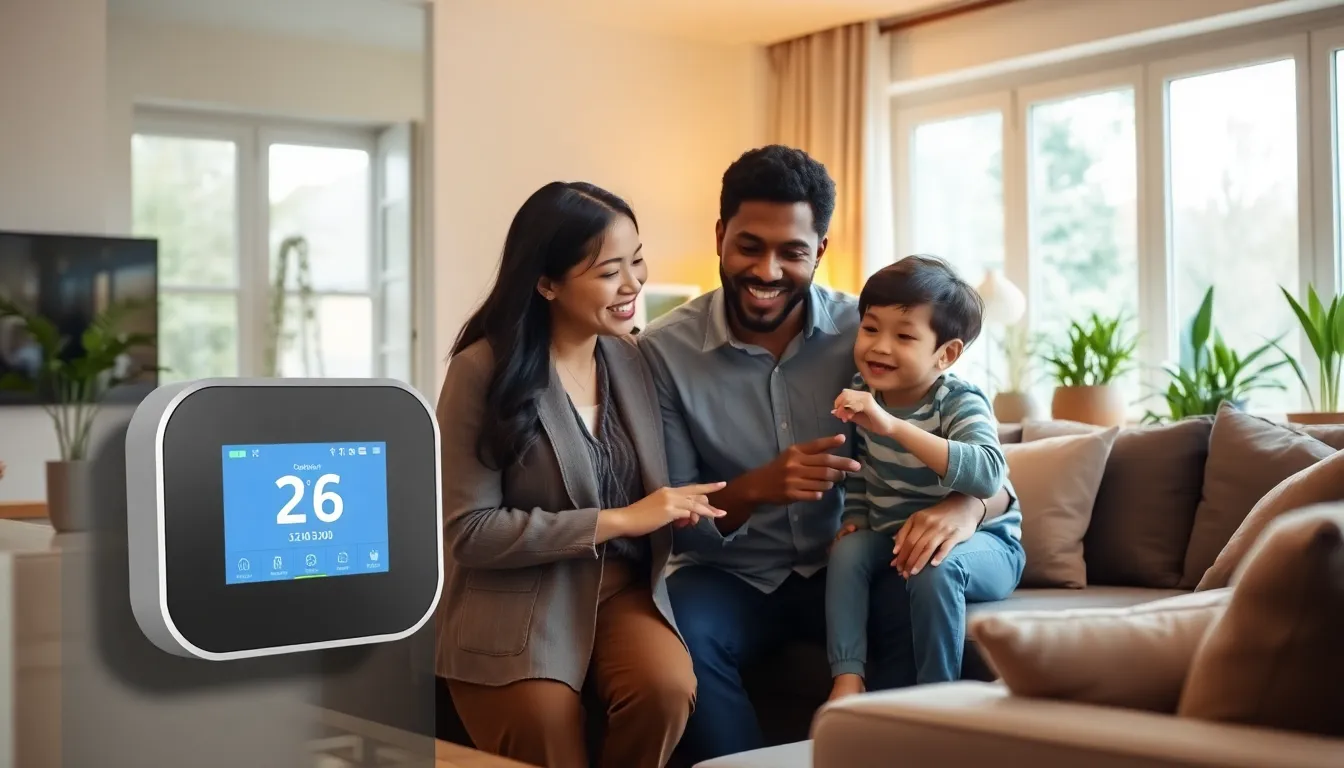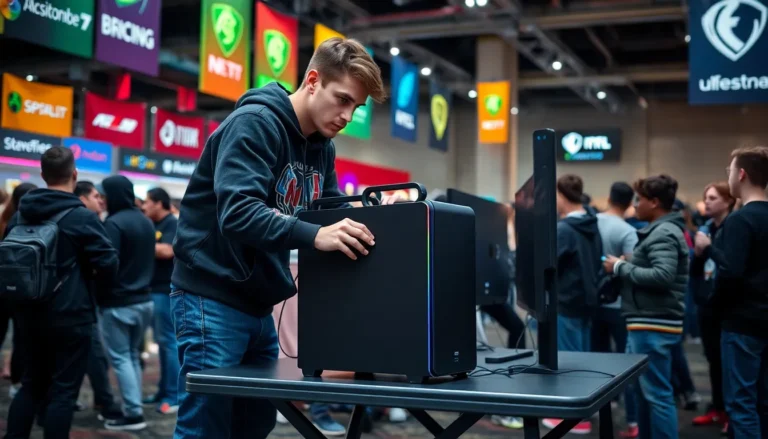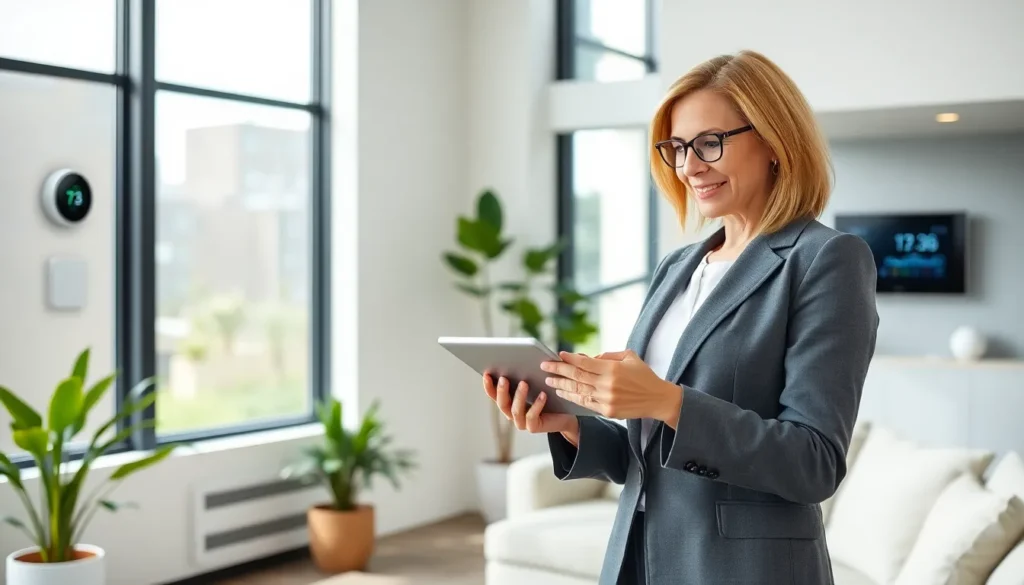Table of Contents
ToggleSmart homes are more than just a trendy buzzword: they represent a monumental leap in how we interact with our living spaces. Imagine waking up to the perfect temperature, lights adjusting automatically, and security systems that seem to read your mind. Sounds dreamy, right? Well, it’s not just a fantasy anymore. Embracing smart home technology can lead to increased energy efficiency, cost savings, heightened security, and a level of convenience that will leave you wondering how you ever lived without it. Let’s jump into the benefits of smart homes.
Increased Energy Efficiency

In the age of technology, one of the standout benefits of smart homes is significantly increased energy efficiency. The devices connected within a smart home ecosystem work tirelessly to optimize energy usage, leading to both environmental benefits and long-term savings.
Optimized Energy Usage
Smart homes help optimized energy usage through real-time monitoring and automated adjustments. This means, for instance, that when no one is home, your heating system can lower the temperature to save energy without sacrificing comfort when you return. By analyzing patterns, these systems can ensure that energy is only used when necessary.
Smart Thermostats and Lighting
Consider smart thermostats that learn your schedule. They adjust heating and cooling based on when you’re home or away, ensuring that energy isn’t wasted when you’re not around. Similarly, smart lighting systems can turn off when you leave a room. These intuitive features make it easy to maintain an energy-efficient home without even thinking about it.
Cost Savings Over Time
Investing in smart home technology often leads to significant cost savings over time. While the initial investment may seem hefty, the return on investment becomes evident as energy bills decrease. A well-implemented smart home can reduce energy consumption by as much as 30% in some cases. Over years, these savings can compound, paying for the devices themselves and more. Not only will your wallet appreciate it, but your future self will also thank you for living more frugally.
Enhanced Home Security
Home security is a top priority for many homeowners, and smart homes take traditional security measures to an entirely new level. With automated monitoring systems and smart locks, homeowners can rest easy knowing their property is protected.
Automated Monitoring Systems
Smart security systems include cameras, motion detectors, and alarms that all operate in unison. Homeowners can watch live feeds from their cameras on their smartphones, get alerts when motion is detected, and even speak to visitors at the door through video intercom systems, enhancing protection and peace of mind.
Smart Locks and Cameras
Gone are the days of fumbling for keys or worrying about whether you left them behind. Smart locks eliminate those worries. Homeowners can unlock their doors remotely via smartphone apps, monitor who’s entering and exiting, and even set temporary access codes for guests. These advantages simplify security and significantly improve overall safety.
Improved Convenience and Comfort
Convenience is another compelling reason to embrace smart home technology. Homes equipped with smart devices offer a level of comfort and ease that traditional homes simply can’t match.
Voice Control and Accessibility
Imagine controlling your entire home with just your voice. Smart assistants like Alexa and Google Home allow for seamless integration with various devices, enabling users to adjust lights, play music, or set the thermostat without lifting a finger. This level of accessibility is particularly beneficial for people with mobility challenges.
Personalized Living Experience
Smart homes can also be tailored to individual preferences. Homeowners can set different scenes that adjust lighting, music, and even scents to create the perfect ambiance for any occasion, whether it’s a movie night or a dinner party. The ability to personalize living spaces makes everyday life more enjoyable.
Integration of Smart Devices
The beauty of a smart home lies in its integration of various smart devices, creating an interconnected system that boosts efficiency and usability.
Interconnected Systems
Consider a home where the thermostat communicates with your smart blinds, lowering them during peak sunlight hours to keep your home cooler. Appliances can work together, ensuring that your energy consumption is as efficient as possible. This interconnectedness not only elevates the functionality of home systems but also simplifies usage, as homeowners can control everything from one platform.
Future-Proofing Your Home
Future-proofing has become a catchphrase in recent years, and smart homes are the hallmark of this trend. As technology advances, homes that are equipped with smart technologies are inherently more adaptable to new innovations.
New devices and systems can be integrated into existing setups with relative ease, ensuring homeowners won’t need to undergo a massive overhaul as new technologies emerge. Smart homes are built to evolve, making them a wise investment in an ever-changing world.
Environmental Impact
Finally, there’s the significant environmental impact of smart homes. Energy-efficient appliances combined with optimized energy usage contribute to reduced carbon footprints and a greener planet.
Reducing energy consumption means fewer fossil fuels burned and lesser emissions released into the atmosphere. By adopting smart home technology, homeowners don’t just save money: they also play a part in protecting the environment for future generations. Every small change counts, and smart homes can lead the way toward more sustainable living.







